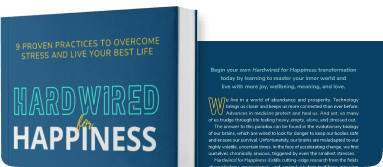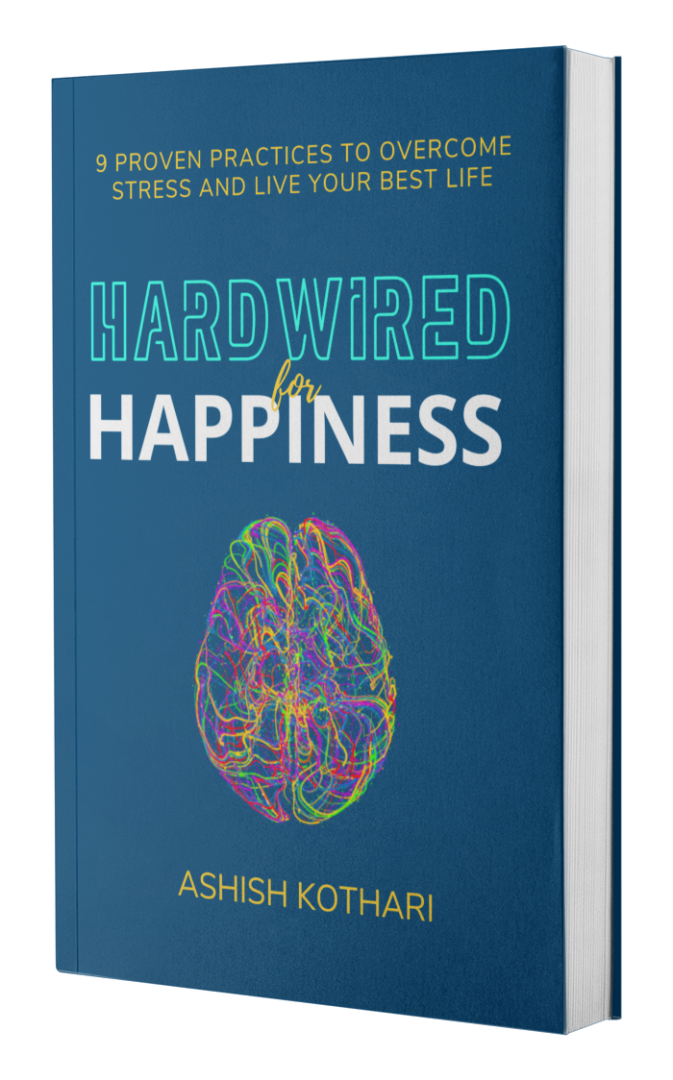How to Create a Truly Flourishing Relationship by Ashish Kothari

When two people come together in a relationship, they bring their unique ways of doing things, which can lead to confusion. It’s like mixing paints—sometimes you get a beautiful new color, and other times it’s a bit of a mess. But every mix-up is a chance to learn about each other and grow stronger together.
In this article, I discuss how cultivating positive emotions strengthens relationships.
“Finding the right spouse or creating the right conditions with your spouse where both of you grow together and deeply connected with each other, can be the biggest source of joy, and perhaps the most important decision you will make in your life.”
– Ashish Kothari
Importance of Relationships for Flourishing
Our closest relationships, especially with our spouses or partners, have a huge impact on our happiness and satisfaction in life. Keeping these relationships healthy and positive is super important. But here’s a scary fact: in the U.S., over 40% of these relationships end in separation or divorce within the first eight years, and over 50% result in divorce or separation overall.
These are often due to conflicts. Conflicts are unavoidable and they can weaken relationships. However, how we handle these conflicts can make all the difference.
Gratitude
Gratitude is a big deal in positive psychology. It’s known to enhance mood, decrease depression, and boost feelings of happiness. In relationships, it’s extremely powerful. When you feel appreciated and valued by your partner, your satisfaction with the relationship improves.

Try being a ‘gratitude detective.’ Start a journal, and notice all the things they do for you that you might take for granted. Gratitude helps counteract negative emotions like jealousy, resentment, or frustration. When you focus on being grateful for what your partner does, you’re less likely to take them for granted or dwell on minor annoyances.
Promote well-being
Life can be stressful and stress can strain any relationship. What you can do is participate in well-being activities, like like jogging, yoga, or even cooking healthy meals together. They can help manage stress, making you and your partner more relaxed and happier.

When you create fun and shared experiences together, it makes you healthier, bring you closer as a couple, and it makes easier to talk things out without turning them into big conflicts.
Acts of kindness
Doing kind things for your partner not only makes them feel loved and appreciated but also boosts your own joy and satisfaction.

Acts of kindness can have lasting positive effects. They remind you why you love your partner and make your relationship more fulfilling and meaningful. Kindness often inspires more kindness, creating a positive cycle.
Purpose and meaning
Having a shared purpose or meaning in your relationship can be a huge motivator. Continuously grounding ourselves despite the busyness of life and everything that comes at us, and focusing on our bigger ‘why’ can be a huge source of renewal and recommitment.

When you and your partner are aligned on your goals and dreams, it strengthens your teamwork and helps you achieve them together. Even when challenges come up, knowing why you’re together and what you want to achieve can help you overcome difficulties.
Mindfulness
Practicing mindfulness, whether together with your spouses and children or individually, can help lower your emotional triggers and enhance your emotional presence with your partner. It allows you to engage more deeply in conversations and share moments rich with understanding and empathy.

Mindfulness helps you notice and appreciate the little things, like how your partner makes coffee or a comforting hand squeeze, which deepens your emotional connection and understanding.
Nurturing connections
The richer the web of connections we have, the more support structures we’ve got, and the stronger the foundation on which our relationship sits. Friends and community can act like a cheerleading squad for your relationship, offering support and advice when needed. Being part of a community gives you a sense of belonging and reminds you that you’re not alone in your struggles.
Managing negative emotions and interactions
Conflicts can often escalate from minor irritations to major blow-ups. Often, they come from the “Four Horsemen of the apocalypse,” which Dr. John and Julie Gottman describe as the most destructive behaviors in relationships, namely criticism, contempt, defensiveness, and stonewalling. Here’s how to counter them:
- Criticism: Avoid blaming or attacking your partner. Instead, express how you feel and what you need without pointing fingers.
- Contempt: Replace any form of disrespect or scorn with appreciation. Acknowledge the good in your partner instead of focusing on the negatives.
- Defensiveness: Instead of defending yourself, try to understand your partner’s point of view and respond with empathy.
- Stonewalling: If you feel overwhelmed, ask for a pause to gather your thoughts instead of shutting down. This helps prevent the buildup of tension and facilitates healthier discussions later.
Handling these moments with strong communication and emotional intelligence can clear the way for more positive experiences with your partner, leading to more joy, laughter, and love.
Compassion
No matter how harsh the conflict is, no matter who’s right or wrong, in any conflict there is suffering for both. But even in conflict, we can practice compassion. Compassion helps you handle tough times with more grace. Seeing things from your partner’s perspective, understanding their feelings, and avoiding the blame game strengthens trust and makes your bond stronger.

Intention setting
Setting intentions in your relationship is like planning before starting an important project. It helps both of you know where you’re headed and how you’ll get there. With a clear plan, you’ll know exactly what to work on in your relationship and adjust your approach as your relationship grows and changes. It’s like making a promise to each other. Setting intentions shows you’re both serious about sticking together and improving your relationship.

Conclusion
To deepen your relationship, start by taking responsibility. When issues arise, focus on finding solutions together rather than blaming each other. Think of yourselves as gardeners, nurturing each other’s needs and helping each other grow. By taking care of each other like this, your relationship can flourish, just like a well-tended garden.
Relationships bring together two different people. Sometimes, things can get a bit complicated, but there are ways you can turn it around. In this episode of the HAPPINESS SQUAD Podcast, Ashish Kothari, Founder of Happiness Squad, talks about cultivating positive emotions to deepen relationships.
Learn more about Ashish at his LinkedIn.
Listen to the podcast with Ashish below.
Access and subscribe to all of the episodes of the Flourishing Edge Podcast here.
Visit the REWIRE Program powered up by the HAPPINESS SQUAD Community and experience your shift within your 30-day risk-free trial today. Cultivate your Self-Awareness, Gratitude, Purpose, Community, and personal growth more through the 9 Hardwired for Happiness practices. Integrate simple and proven micro-practices grounded in the science of happiness and neuroscience of habit formation in 5 minutes a day.
Make Flourishing Your Competitive Edge.


